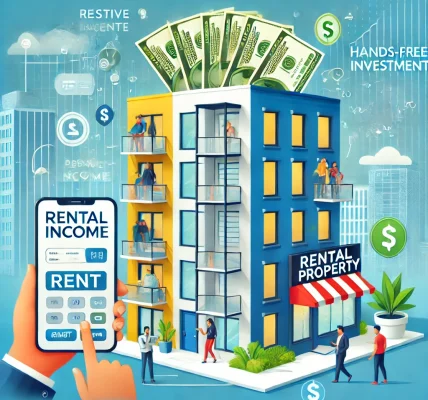Introduction
Real estate investment has long been a reliable way to build wealth, but choosing between short-term and long-term rentals can be challenging. Each strategy has its pros and cons, and the right choice depends on factors like financial goals, market demand, and risk tolerance. In this DIY guide, we will compare short-term and long-term rental investments, providing insights into their benefits, risks, and key considerations to help you make an informed decision.
Understanding Short-Term and Long-Term Rentals
Before diving into the comparison, let’s define the two rental types:
Short-Term Rentals (STRs)
Short-term rentals, commonly listed on platforms like Airbnb and Vrbo, cater to travelers, business professionals, and temporary residents. These properties are typically rented for days or weeks rather than months or years.
Long-Term Rentals (LTRs)
Long-term rentals involve leasing properties for an extended period, typically six months to several years. Tenants often include families, students, or professionals looking for stable housing.
Pros and Cons of Short-Term Rentals
Pros:
- Higher Income Potential: STRs can generate significantly more revenue than long-term rentals, especially in tourist-heavy locations.
- Flexible Pricing: Owners can adjust rental prices based on seasonal demand, maximizing earnings.
- Property Maintenance & Upkeep: Frequent tenant turnover allows for regular cleaning and maintenance, keeping the property in better condition.
- Personal Use: Owners can block dates for personal use when the property is not rented.
Cons:
- Higher Operating Costs: STRs require regular cleaning, utilities, furnishings, and property management, increasing expenses.
- Inconsistent Income: Seasonal fluctuations and demand shifts can result in periods of vacancy.
- Local Regulations & Legal Issues: Many cities impose restrictions or require licenses for short-term rentals.
- Higher Tenant Turnover: Constant guest turnover can lead to wear and tear, increasing maintenance needs.
Pros and Cons of Long-Term Rentals
Pros:
- Steady Income: Monthly rental payments ensure consistent cash flow with less uncertainty.
- Lower Operating Costs: Tenants usually pay for utilities, reducing overhead expenses.
- Fewer Management Duties: Long-term leases require less frequent tenant screening and maintenance coordination.
- Less Regulation Risk: Most areas have well-defined laws for long-term rentals, reducing legal complications.
Cons:
- Limited Flexibility: Owners cannot frequently adjust rent prices or use the property for personal stays.
- Potentially Lower Earnings: Rental income is often lower than STRs in high-demand locations.
- Risk of Problematic Tenants: A difficult tenant may damage property or default on rent, leading to legal disputes.
- Long-Term Maintenance Responsibilities: Major repairs (e.g., plumbing, roofing, appliances) become the landlord’s responsibility over time.
Financial Comparison: Which Generates More Profit?
While short-term rentals typically generate higher monthly income, they also have more costs. Here’s a financial breakdown:
| Factor | Short-Term Rentals | Long-Term Rentals |
|---|---|---|
| Rental Income | High (seasonal fluctuations) | Steady and predictable |
| Operating Costs | High (cleaning, utilities, marketing) | Low (tenants cover some expenses) |
| Vacancy Rate | Higher (off-season dips) | Lower (long leases ensure occupancy) |
| Maintenance | Frequent due to high turnover | Less frequent, but major repairs may arise |
| Legal & Regulatory Risks | Higher (city restrictions, taxes) | Lower (established landlord-tenant laws) |
Legal Considerations and Compliance
Investors must understand the legal landscape before choosing a rental strategy. Here are some key legal aspects to consider:
For Short-Term Rentals:
- Local Regulations: Some cities impose bans, zoning restrictions, or licensing requirements for STRs.
- Tax Implications: STR income may be subject to hotel or occupancy taxes.
- HOA Rules: Some homeowner associations prohibit short-term rentals.
- Insurance Needs: STRs require specialized insurance for liability and damages.
For Long-Term Rentals:
- Lease Agreements: Clear lease contracts outlining rent, security deposits, and tenant obligations are essential.
- Tenant Rights & Evictions: Landlords must comply with eviction laws and fair housing regulations.
- Security Deposits: Laws often limit the amount and use of security deposits.
- Property Inspections: Compliance with local housing codes is necessary for long-term rentals.
Factors to Consider When Choosing a Rental Strategy
- Location & Market Demand
- STRs work best in tourist destinations and business hubs.
- LTRs perform well in residential neighborhoods with strong job markets.
- Financial Goals
- If maximizing short-term cash flow is a priority, STRs may be the better choice.
- If steady, long-term income and lower risk are preferable, LTRs are a safer bet.
- Management Involvement
- STRs require hands-on management or hiring a property manager.
- LTRs need less day-to-day involvement once a reliable tenant is in place.
- Legal & Regulatory Considerations
- Investors must research city laws and ensure compliance to avoid penalties or lawsuits.
- Personal Usage Needs
- STRs allow owners to use the property for vacations or personal stays.
- LTRs lock the property into a long-term lease, limiting personal access.
Which Strategy Wins?
The best strategy depends on your financial goals, risk tolerance, and market conditions:
- Choose Short-Term Rentals If:
- You want high income potential and are willing to manage frequent guest turnover.
- Your property is in a high-demand tourist area.
- You are comfortable handling regulations and compliance challenges.
- Choose Long-Term Rentals If:
- You prefer steady, predictable income with fewer operational costs.
- You seek lower legal and regulatory risks.
- You want a more passive investment requiring minimal hands-on management.
Conclusion
Both short-term and long-term rentals offer unique advantages and challenges. Investors should weigh financial rewards, legal considerations, and management responsibilities before deciding.
- Short-term rentals are ideal for maximizing returns but require active involvement and compliance with local laws.
- Long-term rentals provide stable income with fewer management hassles but may yield lower returns in competitive markets.




